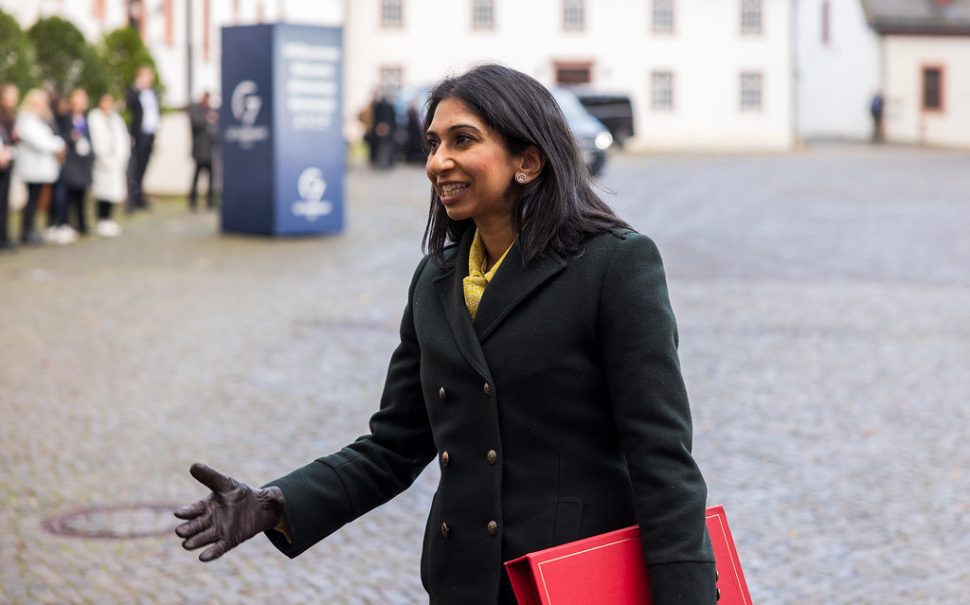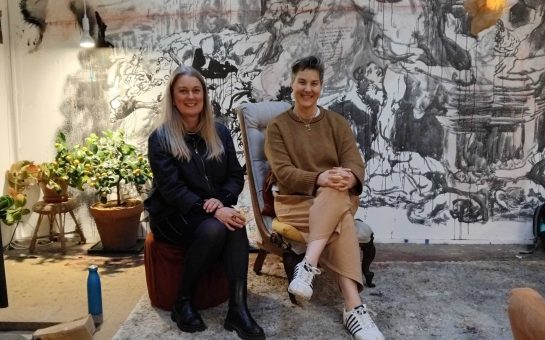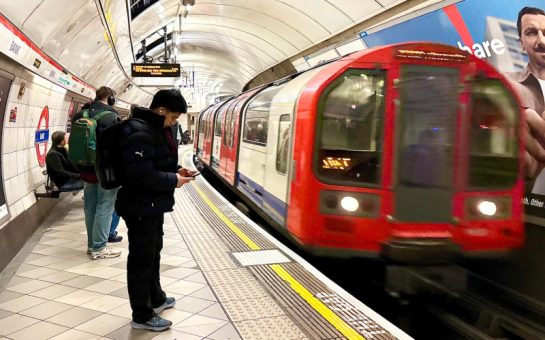The Council of Europe’s GRETA expressed deep concern last month over the Illegal Migration Bill, detailing that it would be a step backwards in the fight against human trafficking.
Suella Braverman’s Illegal Migration Bill, currently in the report stage in the House of Commons, is a plight to “remove those who have entered or arrived in breach of immigration control” and “make provision about detention for immigration purposes”.
It also aims to “make provision” for unaccompanied children and victims of human trafficking, to protect “certain human rights relating to immigration”.
However, Baroness Hamwee, the Liberal Democrat Lead Home Affairs Spokesperson in the House of Lords, said: “The government doesn’t attach appropriate importance to this.”
She voiced her concern that the government’s attitude to modern slavery referrals was as if it were a ‘tick-box’ exercise.
Baroness Hamwee explained how the rhetoric the government have been using to discuss asylum seekers and illegal immigration suggests that they are handling the issue politically, rather than showing humanitarian care.
She said: “To assess whether somebody has been trafficked, and/or is a victim of slavery takes time, a lot of skill, a lot of care. I don’t get the impression that that is all recognised.
“Language is being used which appeals to the electors that the government wants to consolidate and is scared of losing.
“They are painting people who are coming in through the most desperate means as bad people.
“People who make their way to this country, through what the government would call illegal means, who are actually getting away from intolerable situations, are really people we should welcome.”
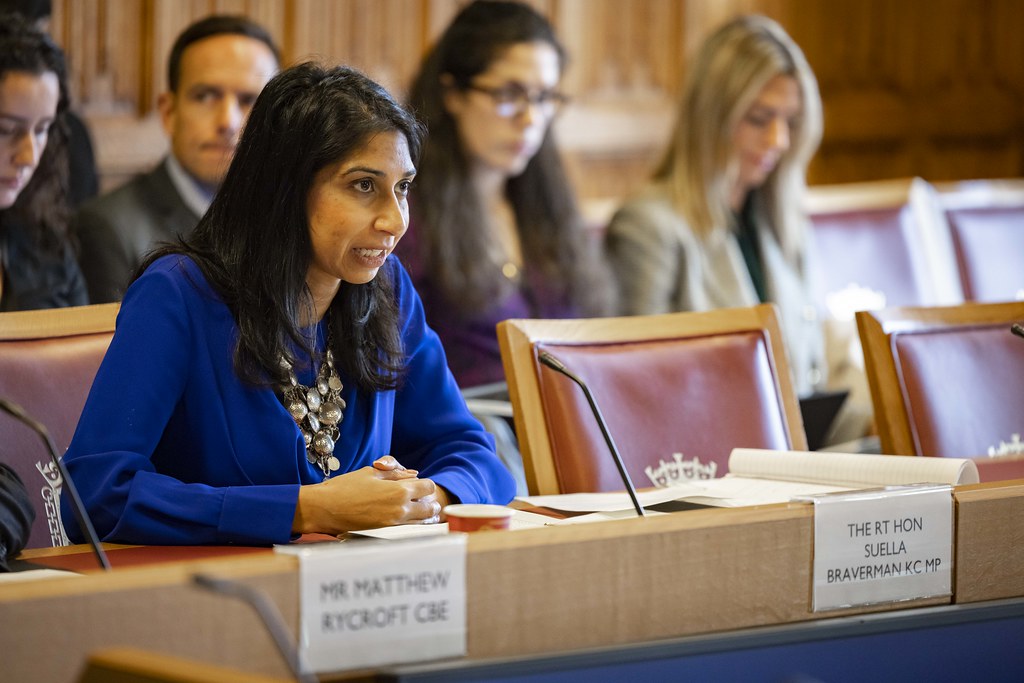
Part of the bill includes Rwanda’s partnership with the UK – a partnership involving illegal migrants being sent to Rwanda with the aim of “disrupting the business model of people-smuggling gangs”.
However, Rwanda remains a Tier 2 human trafficking country, meaning it does not comply with the minimum standards set out by the government to overcome this issue.
Concern has therefore been raised that this would expand the business model of people smuggling gangs, adding to their opportunities, instead of disrupting them.
Prior to this bill, Rishi Sunak announced a five-point plan on 13 December, pledging to crackdown on migrants “unfairly exploiting our modern slavery system”.
In response, a letter was sent to the Home Office from Ed Humpherson, Director General for Regulation, requesting the government to provide evidence for their criminalising claims.
Humpherson detailed: “Policy officials in the department could not point to any specific evidence for this when we enquired.
“What is more, the proportion of referrals deemed by the Home Office to be genuine cases of modern slavery in its ‘conclusive grounds decisions’ has risen year by year from 58% in 2016 to 91% in 2021, which does not suggest in itself that gaming is a growing problem.”
The UN also condemned the UK’s recent legislation, stating on 19 December, that it was “alarmed by the rise in unsubstantiated claims by public officials and Government departments regarding persons seeking protection under the Modern Slavery Act and the National Referral Mechanism (NRM)”.
UN experts said: “There is little evidence to support these claims and generalising them is dangerous and regressive.”
They also noted that requests for corroborating evidence had been ignored by the UK Government on multiple occasions.
The UK Government’s illegal immigration legislation has been an ongoing cause for concern dating back to the Nationality and Borders Bill.
London’s Human Trafficking Foundation disclosed that 90% of referrals to the National Referral Mechanism were proven victims of modern slavery.
This suggests that those coming to the UK claiming to be victims of human trafficking are highly likely to be telling the truth, not “unfairly exploiting” the Modern Slavery Act.
Robyn Phillips, Director of Operations at the Human Trafficking Foundation, said: “We as a foundation are really concerned about the Nationality and Borders Act because it limits support for victims and survivors of modern slavery.
“I think it is really damaging that the government isn’t producing actual evidence of this misuse that they are claiming, and to demonise an entire population is really concerning.
“How does that make Albanian victims of modern slavery feel?
“We need to be doing more to support victims to come forward rather than scaring them that they won’t be believed if they do.”
She also pointed out that 30% of victims of modern slavery are British nationals, so the government’s allegations result in a whole cohort of their own people remaining victims right underneath their noses.
Phillips explained how the Human Trafficking Foundation had requested amendments to be made to the 2022 Nationality and Borders Bill, flagging up two clauses.
The first was that the bill required victims to complete a Slavery or Trafficking Information Notice, however the processes varied for victims based on their nationality, requiring some nationalities of victims to provide ‘early’ or ‘extra information’.
This clause, as identified by the Human Trafficking Foundation, breached the prohibition of discrimination in Article 14 of the European Convention on Human Rights and Article 3 of the Council of Europe Convention on Action against Trafficking in Human Beings.
Secondly, it was found that the bill damaged the credibility of victims if they did not disclose that they had been trafficked within the set time frame listed in the Slavery or Trafficking Information Notice.
Caving under the weight of additional time pressure, the stress of NRM referrals and a fear of the Home Office, victims often now avoid referring, doomed to face a life plagued with exploitation and abuse.
Phillips added: “If survivors don’t trust authorities, if they’re not able to share their experience, then they are much less likely to seek help and witnessing the atrocities of modern-day slavery, so we really need to make sure those support systems are in place.”
The Human Trafficking Foundation’s call for these amendments only managed to ensure that children are now excluded from the damage to credibility.
Baroness Hamwee, also agreed with the concern raised by the Human Trafficking Foundation over the Nationality and Borders Bill.
She disclosed that the House of Lords repeatedly voted against the bill, and that it did not have the House’s stamp of approval.
Baroness Hamwee also revealed that the 2015 Modern Slavery Act requires the government to appoint an Independent Anti-Slavery Commissioner, and after the previous commissioner left their post in April last year, no one has since been appointed.
Sir Vince Cable, the former leader of the Liberal Democrat Party, also criticised the plan, agreeing that it weakened protection available for victims of modern slavery.
He said: “I think one has to recognise the rather toxic politics of this issue.
“For those people who are potentially genuine refugees, we have to ensure that they have some legal way of getting here, and that is going to require cooperation with the French on processing applications before people cross the channel.”
He explained how because of a lack of cooperation with France, and the complications of Brexit, this already complex issue has become infinitely more difficult to manage.
Being able to identify criminal intent is therefore a vital consideration in policing borders, so that legislation condemns those who are actually criminals.
Offering expert insight into the complexity of identifying criminal intent, Phil Baum, chair of the three day conference Behavioural Analysis 2023, works to ensure that legislation and security does not racially profile people in its detecting and handling of criminal intent.
He said: “We have to differentiate between victims of human trafficking who are victims, they are not criminals, and those people who are illegal migrants, who, in some cases, are doing so knowing exactly what they are doing.
“I feel like Albanians have been demonised recently.
“There are people fleeing persecution across the world and they are seeking peace in their own lives.
“Hopefully we are a society that can recognise that, but I do recognise that any government needs to have restrictions.”
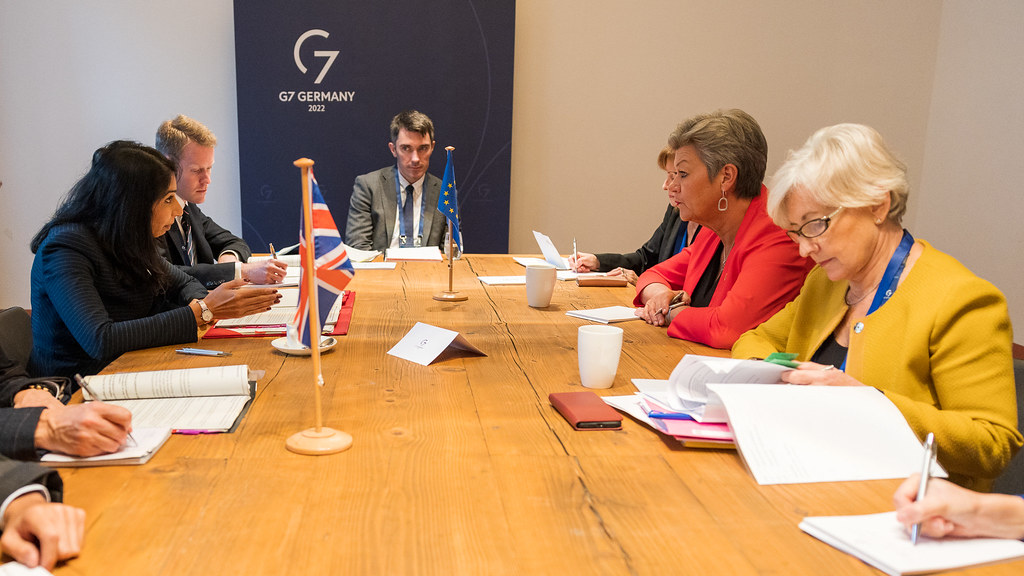
However, he stressed that this responsibility doesn’t lie with one person, but with everyone, through baselining.
Baselining is the act of assessing your surroundings to determine whether people are behaving and appearing incongruous to the setting.
You might ask yourself, does this person look safe, healthy, happy? Are they doing what someone would be doing in this setting?
After asking yourself these questions, Baum emphasised the importance of the simple philosophy: if you see something, say something.
Vitally, it should not be forgotten that criminal identification can be done with respect.
Baum said: “Even where there is a sign of criminal intent, you can still question people in a respectful manner and actually you will probably elicit more information that way by having a friendly conversation.
“I think it is about treating people with respect regardless.”
Kat Rosenblatt, a victim and expert on the issue, stated that this concept of baselining, and having an identification tool is crucial, particularly at immigration offices and border control.
She said that it is their responsibility to take notice of the people passing through, to pick up on suspicious behaviours, or minors travelling with adults who are not their parents or legal guardians.
But, ensuring border control has the qualified, educated personnel to facilitate this form of screening, is a responsibility of the government.
Kat said: “If there is no mandatory training of these types of personnel then there will be numerous accounts of trafficking coming into our various countries and the countries themselves are an unwitting partner in the trafficking of children.
“That’s because you have not had the diligence of making sure that those individuals are not actually trafficking a minor right in front of your nose.”
The first course of action, according to these experts, is that the government should become victim-centred and trauma-informed, to make sure they are not re-victimising victims.
Becoming more informed is something that not only helps those entering the country, but also ensures that within the country, the problem is addressed.
The use of inflammatory rhetoric on a matter that sees men, women and children traumatised, violated and often killed, must therefore be stopped to save victims who are being led to believe they are criminals and outcasts of society.
Feature Image: UK Home Office, Flickr licence
